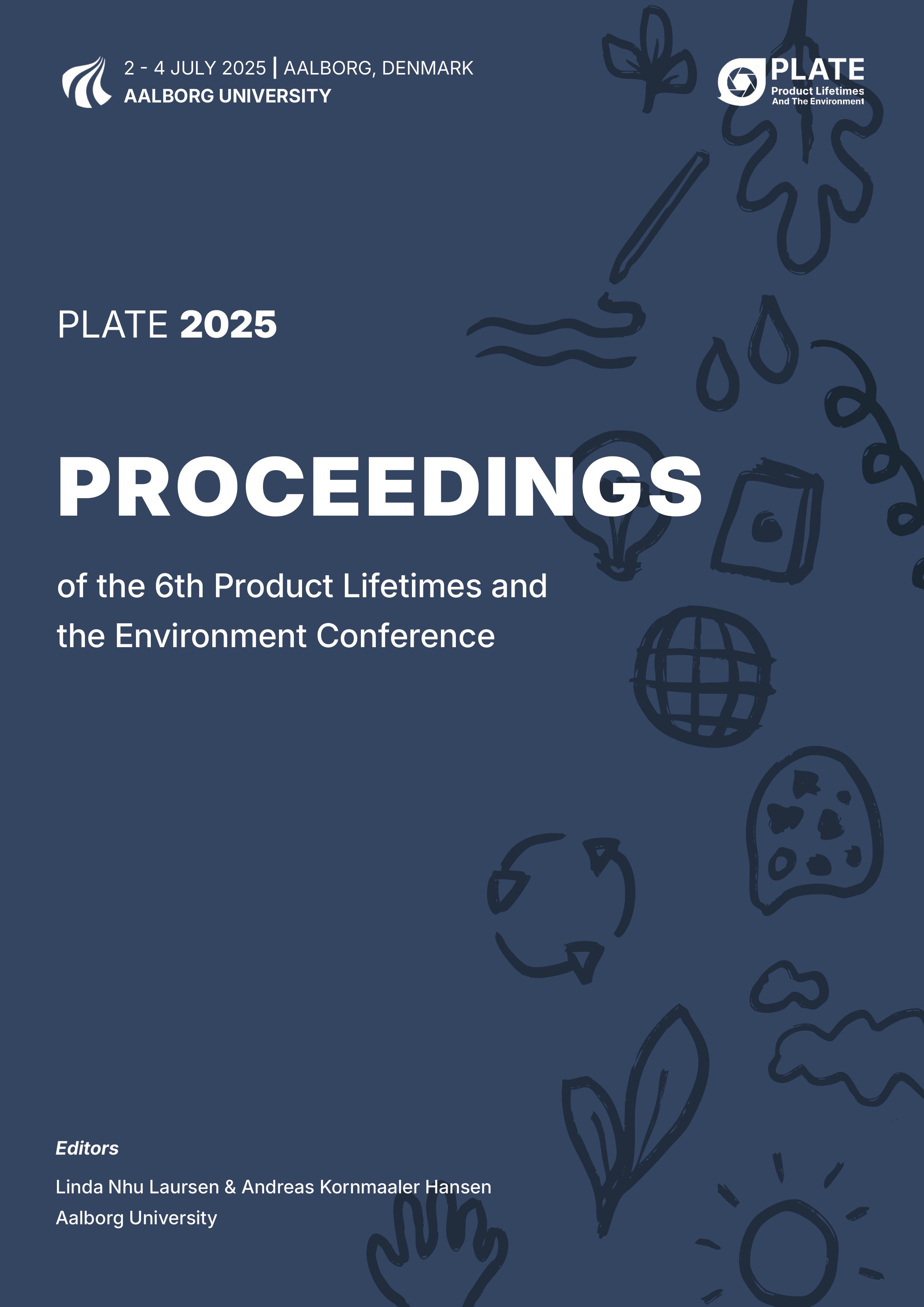Exploring spirituality’s location in sustainable clothing consumption through “Black Swan” narratives
DOI:
https://doi.org/10.54337/plate2025-10260Keywords:
clothing, spirituality, sustainability, consumption practiceAbstract
“Black swan” events (e.g., pandemics, natural disasters, war) often prompt individuals to clarify their self-concept and boost self-esteem with consumptive activities when their mortality is threatened. Research about the Covid-19 pandemic’s effects on clothing consumption indicates that some consumers shifted toward more conscious clothing consumption habits, which may be associated with a desire for self-transcendence (e.g., spirituality). The purpose of this study was to locate spirituality’s role in consumption practice that strengthens clothing’s longevity. Narrative inquiry methodology was used to engage individuals who reported a spiritual experience relevant to their consumption during the pandemic. The study explores the nature of narrators’ spiritual experiences, insights, and the clothing consumption practices and ideals that are informed by each narrator’s spiritual framework, which is idiosyncratic and deeply personal. The pandemic is described by narrators in this study as an opportunity for personal growth and insight into the value of time and relationships. Narrators describe an increased spiritual consciousness, leading to a sense of interconnectedness and responsibility, beyond their own survival. Their empathy for others expands. Materiality is reevaluated in their spiritual sense of what makes a "good life." Most importantly, narrators squarely negotiate their identity through contemplative spiritual practices and reduce their need for external approval. This allows them to deepen their commitment to reduce or restrain their clothing consumption habits. The narrators illustrate how sustainable clothing consumption is itself a spiritual practice that results in greater freedom of expression and a more meaningful and satisfying experience with clothing.
References
Alexander, S., & Ussher, S. (2012). The voluntary simplicity movement: A multi-national survey analysis in theoretical context. Journal of Consumer Culture, 12(1), 66–86. https://doi.org/10.1177/1469540512444019
Chakraborty, S., & Sadachar, A. (2023). Spirituality bestowing self-transcendence amid covid-19 through slow fashion. Journal of Global Fashion Marketing, 14(3), 350–368. https://doi.org/10.1080/20932685.2023.2197920
Changiz, M., Mohammadi-Shirmahaleh, F., Mardani-Hamooleh, M., & Seirafi, M. (2024). Crystallization of spiritual awakening in patients with Covid-19: A hermeneutic study. Novelty in Biomedicine, 12(2), 61–67. https://doi.org/10.22037/nbm.v12i2.44125
Cherrier, H., & Murray, J.B. (2002). Drifting away from excessive consumption: A new social movement based on identity construction. Advances in Consumer Research, 29, 245-247.
Clandinin, D.J., & Connelly, F.M. (2000). Narrative inquiry: Experience and story in qualitative research. San Francisco: Jossey-Bass.
Clandinin, D.J., & Rosiek, J. (2007). Mapping a Landscape of Narrative Inquiry: Borderland Spaces and Tensions. In D.J. Clandinin (Ed.), Handbook of narrative inquiry: Mapping a methodology (pp. 35–75). Sage Publications, Inc.
Combs, A., & Krippner, S. (2003). Process, structure, and form: An evolutionary transpersonal psychology of consciousness. International Journal of Transpersonal Studies, 22(1), 47–60. https://doi.org/10.24972/ijts.2003.22.1.47
Coscieme, L., Akenji, L., Latva-Hakuni, E., Vladimirova, K., Niinimäki, K., Henninger, C., Joyner Martinez, C., Nielsen, K., Iran, S., & D´Itria, E. (2022). Unfit, Unfair, Unfashionable: Resizing Fashion for a Fair Consumption Space. Hot or Cool Institute, Berlin, Germany.
Davis, J. (2003). An overview of transpersonal psychology. The Humanistic Psychologist, 31(2-3), 6-21. https://doi.org/10.1080/08873267.2003.9986924
Elgin, D. (1981). Voluntary simplicity: Toward a way of life that is outwardly simple, inwardly rich. William Morrow.
Esposti, P., Mortara, A., & Roberti, G. (2021). Sharing and sustainable consumption in the era of COVID-19. Sustainability, 13(4), 1903. https://doi.org/10.3390/su13041903
Etzioni, A. (1998). Voluntary simplicity: characterization, select psychological implications, and societal consequences. Journal of Economic Psychology, 19, 619–643. https://doi.org/10.1007/978-3-662-03900-7_1
Hunting, A., & Conroy, D. (2018). Spirituality, stewardship and consumption: New ways of living in a material world. Social Responsibility Journal, 14(2), 255–273 https://doi.org/10.1108/srj-06-2016-0097
Iran, S., Joyner Martinez, C.M., Vladimirova, K., Wallaschkowski, S., Diddi, S., Henninger, C. E., McCormick, H., Matus, K., Niinimäki, K., Sauerwein, M., Singh, R., & Tiedke, L. (2022). When mortality knocks: Pandemic-inspired attitude shifts towards sustainable clothing consumption in six countries. International Journal of Sustainable Fashion & Textiles, 1(1), 9–39. https://doi.org/10.1386/sft/0002_1
Grof, C., & Grof, S. (1989). Spiritual emergency: When personal transformation becomes a crisis. New York, NY: Putnam’s Sons.
Joyner Armstrong, C.M. (2021). Fashion and the Buddha: What Buddhist economics and mindfulness have to offer sustainable consumption. Clothing and Textiles Research Journal, 39(2), 91–105. https://doi.org/10.1177/0887302x20917457
Kaiser, S. B. (1997). The Social Psychology of Clothing: Symbolic appearances in context. Fairchild Publications.
Kaza, S. (2000). Overcoming the grip of consumerism. Buddhist-Christian Studies, 20(1), 23–42. https://doi.org/10.1353/bcs.2000.0013
Klepp, I., Laitala, K., & Wiedemann, S. (2020). Clothing lifespans: What should be measured and how. Sustainability, 12(15), 6219. https://doi.org/10.3390/su12156219
Penz, E., & Drewes, K.L. (2022). What shapes pro-environmental attitudes and intention for sustainable fashion consumption during a stressful time event? Sustainability, 14(22), 15331. https://doi.org/10.3390/su142215331
Pyszczynski, T., Lockett, M., Greenberg, J., & Solomon, S. (2021). Terror management theory and the COVID-19 pandemic. Journal of Humanistic Psychology, 61(2), 173–189. https://doi.org/10.1177/0022167820959488
Sandlin, J.A., & Walther, C.S. (2009). Complicated simplicity. Adult Education Quarterly, 59(4), 298–317. https://doi.org/10.1177/0741713609334137
Sinclair, C. (2016). Transformation and subjectivity in spiritual emergence and emergency: A discourse analytic study. Journal Of Transpersonal Psychology, 48(1), 34-56.
Stillman, T.F., Fincham, F.D., Vohs, K.D., Lambert, N.M., & Phillips, C.A. (2012). The material and immaterial in conflict: Spirituality reduces conspicuous consumption. Journal of Economic Psychology, 33(1), 1–7. https://doi.org/10.1016/j.joep.2011.08.012
Uggla, Y. (2019). Taking back control: Minimalism as a reaction to high speed and overload in contemporary society. Sociologisk Forskning, 56(3–4), 233–252. https://doi.org/10.37062/sf.56.18811
Ulvoas-Moal, G. (2010), “Exploring the influence of spirituality: a new perspective on senior consumers’ behavior”, in Campbell, M.C., Inman, J. and Pieters, R. (Eds), Advances in Consumer Research, 37, Association for Consumer Research, Duluth, MN, 917-919.
Vladimirova, K., Henninger, C.E., Joyner-Martinez, C., Iran, S., Diddi, S., Durrani, M., Iyer, K., Jestratijevic, I., McCormick, H., Niinimäki, K., Thangavelu, P., Sauerwein, M., Singh, R., Simek, P., & Wallaschkowski, S. (2022). Fashion consumption during COVID-19: Comparative analysis of changing acquisition practices across nine countries and implications for Sustainability. Cleaner and Responsible Consumption, 5, 100056. https://doi.org/10.1016/j.clrc.2022.100056
Walsh, R.N., & Vaughan, F. (1980). Beyond the ego: toward transpersonal models of the person and psychotherapy. Journal of Humanistic Psychology, 20(1), 5-28




